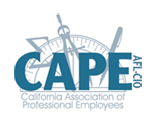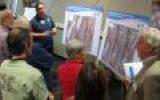Pension Reform Update:
LEGISLATORS PASS AND GOVERNOR SIGNS BILL
Full Impact Still Unknown
In the final days of the 2011-2012 Session, legislators met with the Governor and his staff to craft major reform on the laws that govern public employee pension systems and benefits.
Pension managers and local government officials across California are struggling to determine the impact on their employees and pension system members. Los Angeles County and LACERA officials have released only preliminary assessments of the impact on current and future employees. The County's retirees are still waiting for more information to follow from LACERA representatives.
What We Know for Sure:
AB 340, known as the Public Employees Pension Reform Act (PEPRA), was adopted by the State Legislature due to political imperative NOT because our pension system in L.A. County needed fixing. Legislators and the Governor's staff were forthright about their approach, and that the Act may require fixing in future legislative sessions to correct any unintended consequences.
PEPRA will definitely apply to the County and LACERA. At least one early and incorrect analysis indicated the Act would exclude 1937 Act retirement systems. That information was not accurate. The Act will apply to most state and local employees. Charter cities (Los Angeles and Pasadena) are required to adopt local ballot measures to comply. New employees, generally those first hired on and after January 1, 2013, will get hit the hardest by the changes.
Major Changes Likely to Impact New Employees:
New employees are defined by the Act as anyone hired on or after January 1, 2013. New employees will be subject to the following restrictions and limitations:
• Reduced retirement formulas.
• Increased retirement ages.
• More restrictive definition of “pensionable” compensation.
• A $132,120 Cap (indexed for inflation) on the level of pensionable compensation.
• A 3-year final average comp period
• Equal sharing of normal costs between new employees and the County (50/50 split)
Changes Applicable to Current & New Employees:
Most pension experts agree that a short list of the Act's provisions will apply and will be implemented by local agencies and pensions systems by January 1, 2013. Those restrictions and limitations include:
• Prohibition on the Purchase of “Air Time”.
• No New Supplemental Defined Benefit Plans.
• Prohibition on Retroactive Benefit Increases.
• Forfeiture of Benefits by Felons.
• Prohibition on Contribution Holidays by employers
There are many other provisions of the Act that reportedly apply to current employees, although pension experts disagree over how and when the restrictions may apply. Those provisions of the Act include:
• A 6 Month Waiting Period for 120-Day Wonders.
• Clarification of Amounts Excludable from Pensionable Compensation.
• Administrative Procedures Related to Determination of Compensation Earnable.
• Equal Retiree Health Benefit Vesting for Non-Represented and Represented Employees.
• Authority for BOS to Impose Cost Sharing.
Many of these provisions may take months to interpret, and many of them may be implemented differently between jurisdictions. Los Angeles County officials are taking the slow, careful road to determine exactly what should be applied.
For example, the so-called 'cost sharing' provisions set the 50/50 split as a goal between employee and employer contributions, and outlines a 5-year time window for local agencies to negotiate with employee bargaining unit representatives. The Act reportedly allows local agencies to impose cost sharing if no agreement is reached in the 5- year window. However, exactly what constitutes 50/50 cost sharing is not precisely defined in the Act.
The debate over pension reform is likely to shift, at least for the near future, to whether or not the last minute legislated changes are sufficiently onerous on public employees to warrant voter support for the Governor's tax measure, Proposition 30, which has been endorsed by CAPE. Discussions on what pension reform provisions need repairing, and how those repairs will be crafted, are likely to wait until the 2012-13 Legislative Session gets underway in January.
[CAPE Members: Please share this website with non-members at your work location]
©CAPE [Terms of Use]














